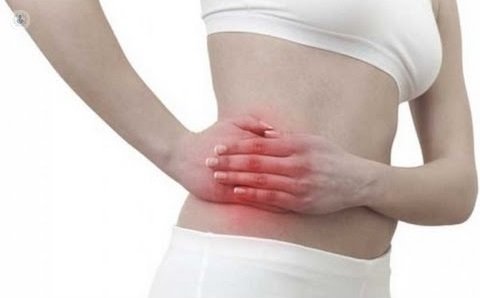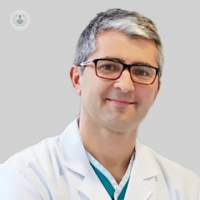renal failure, causes and prevention
Written by:The kidneys have the function of filtering and cleaning the blood, so to kidney failure, organ deteriorates and loses its ability to filter. Thus the blood is filled with substances that the kidney should be removed. Prevention is possible depending on the source.

Types of renal failure
- Acute renal failure is the sudden deterioration of renal function and therefore temporarily reversible. The kidneys fail to adequately filter blood and nitrogen products, waste degradation and metabolism molecules accumulate. Consequently, it decreases urine production and in most cases the person excretes urine fewer or no, what is called oliguria or anuria.
- Chronic renal failure is the loss of kidney function gradually and over a long period of time, leading to the inability of the kidneys. Early diagnosis and proper treatment in time allows in most cases slow down this process.
Symptoms of kidney failure How to detect?
Importantly , in Urology speaking of renal failure refers to an alteration of the function of one or two kidneys in the patient has only one kidney. And you can live well with one kidney, but keep in mind that a single kidney is performing the function of the two and therefore may be more predisposed to develop chronic renal failure if not properly cared for.
When acute renal failure occurs, its short duration does not give rise to all clinical disorders of the lack of renal function occur, however, in chronic renal failure symptoms and own laboratory abnormalities of this situation will appear, as for example:
- Swelling of legs, ankles, feet, face and hands
- Changes in urination
- generalized itching
- metallic taste in the mouth
- Nausea and vomiting
- Feeling cold
- Lack of concentration
Causes of renal failure
The kidneys can be affected by different diseases types:
1. Urinary infections:
Or kidney infection is pyelonephritis type UTI generally begins on the urethra or bladder and travels up the kidneys. When it is acute, it is sudden and severe, and causes the kidneys to swell. Usually with specific treatment they are cured, but could permanently damage the kidneys. When it repeated or persistent called chronic pyelonephritis, although not very common.
2. Kidney stones:
Kidney stones, also called kidney stones, affect 5% of the Spanish population and is more common in women and children. This disease is the result of the crystallization of substances that are normally dissolved in urine. In most cases the cause is unknown, but 1 in 5 cases about genetic factors, diet, the amount of liquid ingested, urinary tract infections and various metabolic diseases involved in their appearance.
3. Various diseases:
Many cases of chronic kidney failure come from a Meliitus diabetes or high blood pressure for years suffered, inflammatory diseases of the kidney or excessive consumption of certain painkillers.
4. glomerulonephritis:
Glomerulonephritis is a problem that affects renal units in charge of the filtering process called glomeruli. When a person has glomerulonephritis, glomeruli become inflamed, swollen and irritated, and kidneys stop functioning properly.
5. Kidney cancer:
Malignant kidney tumors are rather uncommon in Spain. They represent between 3% and 4% of all cancers, and its most frequent form of renal carcinoma cells.
Treatment of renal failure
Depending on the triggering cause, the solutions will be different:
1. Kidney infections: the causes of infections are detected to treat them. In many cases the cause is not found and the treatment will consist of vaccines and prophylactic antibiotics to reduce the number of infections.
2. Kidney Stones treatment will depend on the size and situation in which the stone is found. Possible treatments would by:
- expulsive treatment: Stones below 10 mm are theoretically deportable.
- Ureterorenoscopy: be to introduce a thin apparatus through the ureter to reach the stone and break Holmium laser.
- Nephrolithotomy: surgery that removes large kidney stones directly, in which a small incision is made in the back and instruments are inserted through a tube in the kidney and thus remove stones.
- Extracorporeal shock wave lithotripsy: is carried out by a machine that can break the stones from outside the body using sound waves of high energy.
3. Several diseases: it would adjusting glucose, blood pressure and other factors that influence the deterioration of renal function.
4. Glomerulonephritis: Treatment depends on the cause of the disease and the severity of symptoms. Control of hypertension is usually the most difficult and important aspect of treatment. Medications are often prescribed:
- Blood pressure medications to control hypertension
- corticosteroids
- Drugs that suppress the immune system
5. Kidney cancer: the ideal treatment is to treat the cancer in its early stages through surgery full or partial kidney removal.
Tips for maintaining healthy kidneys
Healthy eating habits, exercise consistently and preventing the consumption of snuff and alcohol, as well as tests performed periodically, are the best way to prevent any disease or kidney damage. In addition, you should avoid these risk factors:
1. Soft drink consumption. Regular consumption of carbonated drinks cause kidney stones that prevent cleanse the body.
2. Protein foods. The substances most difficult to remove kidneys are proteins that encuentransobre all in meat, fish and eggs, so their consumption should be moderate.
3. Drink little water. A low consumption favors the onset of kidney damage and urinary tract infections. In addition, drink about 2 liters per day contributes waste disposal and prevents the formation of stones. Normally the intake of a half liter of water, which are about six to eight glasses a day is recommended. The remaining half liter is acquired by eating healthy fruit, already watery.
4. Foods high in potassium. Potassium can also be harmful because it contains substances that are filtered by the kidney and bad accumulate in the blood.
5. High blood pressure. Hypertension damages the kidneys. It is therefore advisable not to take too much salt in the meals.
6. Smoking. Smokers have a risk three times higher risk of developing kidney impairment, even when they have hypertension and diabetes.
7. Sedentary lifestyle. Since it is associated with increased risk of hypertension, high cholesterol and diabetes.


